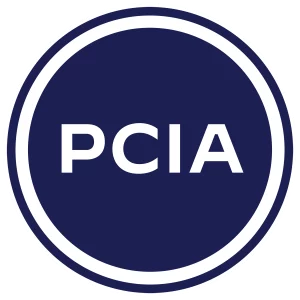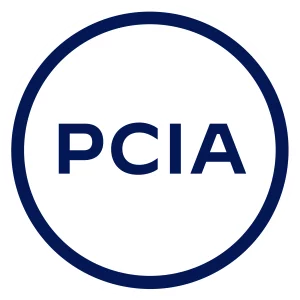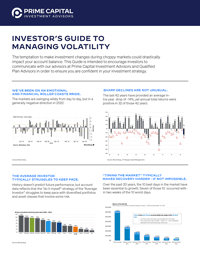If you can believe it, the year is more than halfway over. This is a good time to assess your finances and see if you are on track to achieving the goals you entered the year with, or if adjustments need to be made. A financial mid-year review can involve a multitude of aspects, from taking a close look at your financial progress and rebalancing your portfolio to setting brand new goals. Below are some focus points you may want to consider when doing your review.
1. Review of Financial Progress
Think back to the financial goals you made at the beginning of the year. Take a moment to assess your balance sheets and income statements, as well as your portfolio performance, to see if you are on track to achieving those goals. Knowing where you are performing well and where you are lacking will give you an idea of what actions you may want to take for the remainder of the year.
2. Cash Flow Analysis
You’ll first want to figure out exactly how much money you have going into your account versus going out. You can do that through a cash flow analysis. Pull up your statements and analyze essential and discretionary spending. Make sure to identify any major purchases or unexpected expenses. Reviewing your spending for the current year alongside previous years will give you an opportunity to discover patterns and potentially help you plan ahead.
For example, if you are a homeowner and in reviewing your spending for the past three years you notice every year you spend a sizeable amount for an unexpected home repair, take note and incorporate that into your budget.
3. Income and Expense Management
Sometimes we don’t even realize we are overspending. You will want to make sure your income is aligned with your current spending. If you made an expense plan at the beginning of the year, evaluate any deviations from that original plan. Assess whether your income and expenses align with expectations, and if you are overspending, identify exactly what you are overspending on. This will allow you the opportunity to identify areas to cut costs and improve savings.
4. Adjusting for Major Life Events
Sometimes things happen that we did not plan for or consider at the beginning of the year, like an unexpected illness or your daughter getting engaged. Now is the time to account for those significant life changes and adjust your financial plan accordingly.
5. Vacation and Major Purchase Planning
Do you finally want to take that trip to Europe? Or maybe you’re considering getting your teen a car for their 16th birthday next year. Now is the time to see if you are on track to fit that in your budget. These are like life events, but ones you are planning for yourself and have a bit more control over in terms of timing. Once you identify these, you will want to adjust discretionary spending to accommodate these plans.
6. Variable Income Considerations
If you have income from freelance, commission-based work, or from interest on investments/savings, you’ll want to compare projected income against the actual income you’ve earned so far this year. This comparison helps identify gaps so you can adjust your financial plan accordingly. This will also help you assess whether you have enough savings to cushion you against income fluctuations or if you need to adjust your spending.
7. Portfolio Rebalancing
Take a look at your portfolio. You may find that certain assets are performing better or worse than others, causing your portfolio to drift from its target allocation. Rebalancing helps maintain the desired risk and return profile. You’ll want to analyze the performance of different sectors within your portfolio, looking at sectors that have outperformed or underperformed relative to expectations. This evaluation can help you decide whether to increase or decrease exposure to specific sectors based on market trends and future outlooks.
If some investments have lost value, consider selling them to realize losses. These losses can offset gains from other investments, reducing the overall tax burden. Tax loss harvesting is a strategic move to help improve after-tax returns while maintaining the portfolio’s integrity.
8. Emergency Fund Assessment
One of the most important things to assess is the state of your emergency fund. You will want at least three to six months’ worth of expenses put aside in a liquid and easily accessible account. This will help protect you from major life disruptions like job loss, medical emergencies, or home repairs.
This is also the time to evaluate whether any upcoming financial goals or life changes require an adjustment to your emergency fund. For instance, if you’re planning to start a business, or a family, or moving to a new city, you might need to increase your emergency fund to reflect that.
9. Setting New Goals
Whether you’ve made a lot of progress or are still trying to get started, setting new goals mid-year will help ensure your financial strategy stays aligned with your evolving circumstances and aspirations. Take a comprehensive look at your financial goals and determine whether they still reflect your current priorities and situation. Priorities may have shifted since the start of this year. Use this opportunity to determine goals that are currently most important to you. Ensure that your actions and financial decisions support these goals, whether it’s increasing savings, reducing debt, or investing for the future.
You can delve deeper into mastering your mid-year review by clicking here to listen to Jason Noble and Andy Merchant discuss this topic on the latest episode of their podcast, “20 Minutes of Clarity.”
If you’re interested in help with your mid-year review and want to know what you can do to help set yourself up for success for the remainder of the year, remember, we are here to help with the complexities of financial planning while keeping your goals in focus. Give Jason Noble a call today at (843) 743-2926 or PCIA Wichita at (316) 669-9413 to take the first step.
Advisory products and services offered by Investment Adviser Representatives through Prime Capital Investment Advisors, LLC (“PCIA”), a federally registered investment adviser. PCIA: 6201 College Blvd., Suite#150, Overland Park, KS 66211. PCIA doing business as Prime Capital Financial | Wealth | Retirement | Wellness.
080524021 JG





